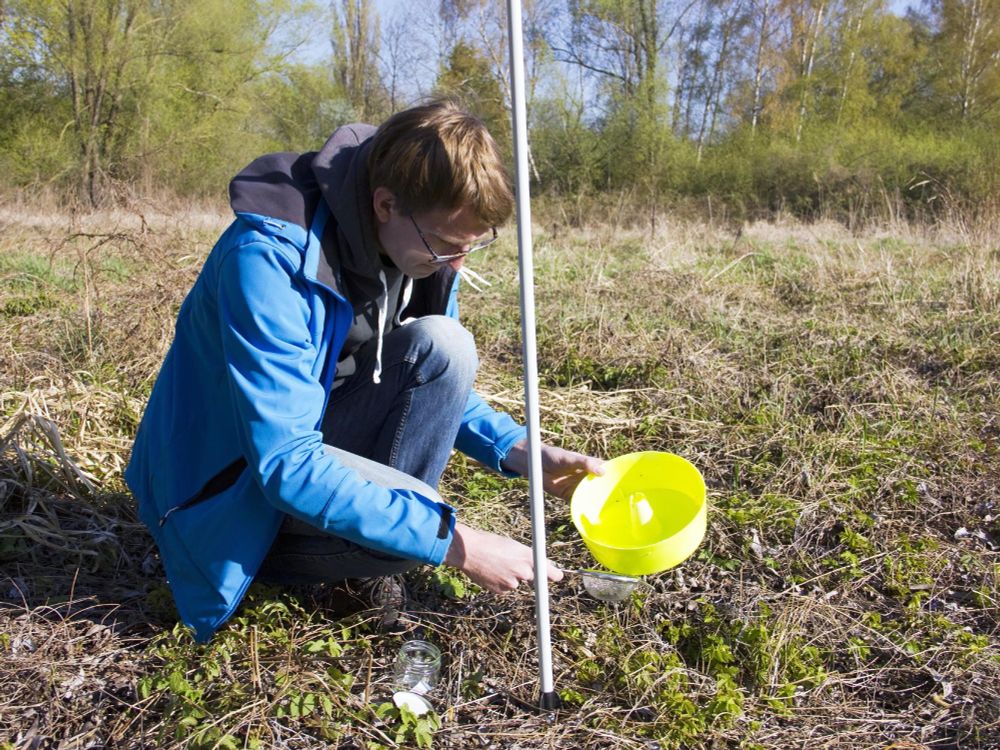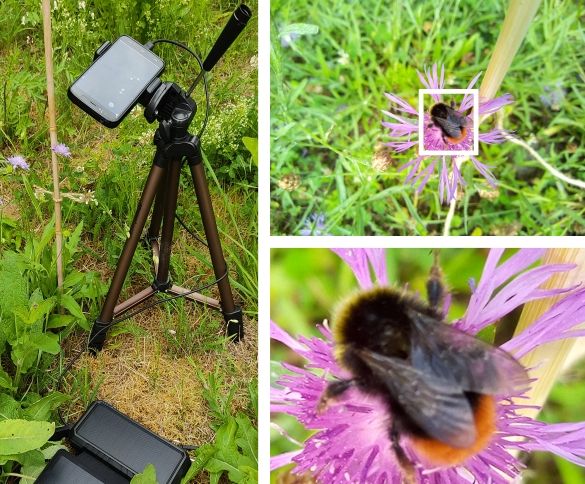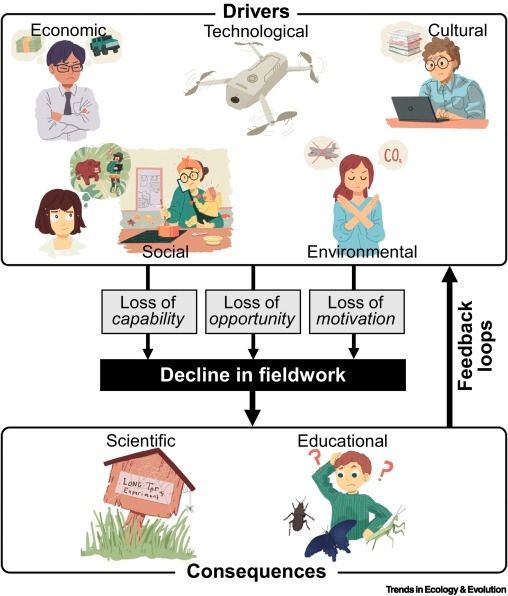
I'm a researcher at the Institute for Bee Protection, Julius Kühn Institute in Brunswick, Germany
agroecology | ecotoxicology | wild bee diversity | plant-pollinator interactions | pollinator monitoring
🇩🇪🇨🇮🇺🇲 views are my own
#JKI 🐝🌱
@jki-research.bsky.social
@nabu.de
doi.org/10.1111/icad...

@jki-research.bsky.social
@nabu.de
doi.org/10.1111/icad...
@ukceh.bsky.social @uor-research.bsky.social @nhm.org

@wbrazelton.bsky.social
www.nature.com/immersive/d4...

@wbrazelton.bsky.social
Trees are often overlooked as relevant bee forage ressources. Realising that there is relatively little known about bees in flowering tree canopies, we searched for data and methodologies to tackle this gap.
@jki-research.bsky.social

Trees are often overlooked as relevant bee forage ressources. Realising that there is relatively little known about bees in flowering tree canopies, we searched for data and methodologies to tackle this gap.
@jki-research.bsky.social

Ant queens of one species produce males of another species, so she can then mate with them and produce hybrid workers!
This is so gloriously weird I can't quite compute it 🤯🧪🐜
www.nature.com/articles/d41...

Ant queens of one species produce males of another species, so she can then mate with them and produce hybrid workers!
This is so gloriously weird I can't quite compute it 🤯🧪🐜
www.nature.com/articles/d41...
doi.org/10.1016/j.uc...
One of the puzzle pieces to predict future urban bee community composition...

doi.org/10.1016/j.uc...
One of the puzzle pieces to predict future urban bee community composition...
Spoiler: not a very big problem.
Pike & Rittschof 2025
doi.org/10.1093/icb/...
#apidologie #beeresearch #beescience #science #biology #environment #beekeeping #bees

Spoiler: not a very big problem.
Pike & Rittschof 2025
doi.org/10.1093/icb/...
#apidologie #beeresearch #beescience #science #biology #environment #beekeeping #bees



doi.org/10.26786/192...
tinyurl.com/3rt2ewce


www.julius-kuehn.de/en/bs



www.julius-kuehn.de/en/bs
🔬 Discover more: www.julius-kuehn.de/en/structure
🎥 youtu.be/ne4yfS3vYNs
@bmel.de
This is Xylocopa tumida and she is gorgeous. 1/3


This is Xylocopa tumida and she is gorgeous. 1/3
onlinelibrary.wiley.com/doi/10.1111/... Another wonderful paper of @joseblanuza.bsky.social making open more than >1500 networks and looking at their properties. Come for the data, stay for the cool figures!

onlinelibrary.wiley.com/doi/10.1111/... Another wonderful paper of @joseblanuza.bsky.social making open more than >1500 networks and looking at their properties. Come for the data, stay for the cool figures!
doi.org/10.26786/192...

doi.org/10.26786/192...
Autor*innen: Thomas Fechtler, Hanna Gardein (Julius-Kühn-Institut), Felix Kirsch @thuenen.de, Friederike Grau & Annika Haß @funcagroeco.bsky.social @unigoettingen.bsky.social & Fionn Pape.
▶️ www.researchgate.net/publication/...


Autor*innen: Thomas Fechtler, Hanna Gardein (Julius-Kühn-Institut), Felix Kirsch @thuenen.de, Friederike Grau & Annika Haß @funcagroeco.bsky.social @unigoettingen.bsky.social & Fionn Pape.
▶️ www.researchgate.net/publication/...

jeffollerton.co.uk/2025/01/07/w...
#bees #pollinators #biodiversity #ecology #botany #History

jeffollerton.co.uk/2025/01/07/w...
#bees #pollinators #biodiversity #ecology #botany #History
#SciComm #ecology #ecosystems
sciworthy.com/butterflies-...

#SciComm #ecology #ecosystems
sciworthy.com/butterflies-...

and temporal #diversity of crops. Led by Thijs Fijen @w-u-r.bsky.social

and temporal #diversity of crops. Led by Thijs Fijen @w-u-r.bsky.social
This issue is linked to the erosion of natural history training in general.

This issue is linked to the erosion of natural history training in general.
doi.org/10.1242/jeb....

doi.org/10.1242/jeb....

